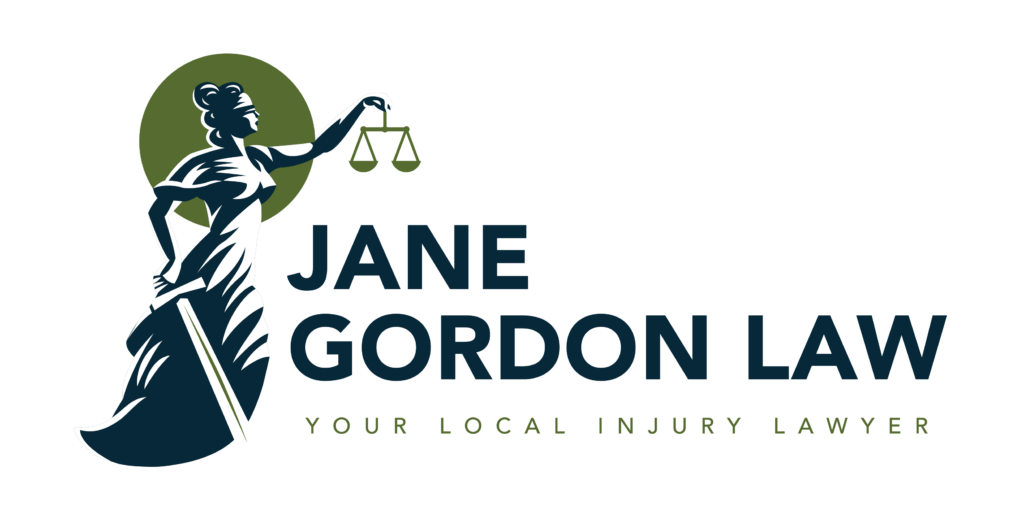
5 Things You Didn’t Know Could Affect Your Personal Injury Claim
If you’ve been injured, your focus is likely on healing, and understandably so. But what many people don’t realize is that small decisions made early on can have a major impact on the outcome of a personal injury claim. Even if the facts seem straightforward, your case can be weakened by things that don’t seem directly related to the injury itself.
From how quickly you seek care to what you say online, here are five things you may not realize could affect your personal injury claim — and what you can do to protect your rights.
#1: Failing to Report the Incident Promptly
Whether you were injured in a car crash, a slip and fall accident, or another type of incident, reporting it right away is critical. Failing to notify the appropriate people — whether it’s the police, a property owner, or your employer — can seriously weaken your injury claim.
Delayed reporting opens the door for the other party to argue that the injury never happened, that it wasn’t that bad, or that it occurred at another time or place. It also makes it harder to gather evidence. Surveillance footage might be deleted. Witnesses may forget what they saw. Physical conditions at the scene can change.
To avoid these issues, report the incident as soon as possible and ask for written documentation. If you filed a police report, request a copy. If you reported the injury to a manager or supervisor, make sure it’s recorded in writing. This documentation creates a valuable paper trail that helps support your injury claim from day one.
#2: What You Say on Social Media
After an injury, social media may be the last thing on your mind — or it may be the first place you turn to let friends and family know you’re okay. But posts, photos, and comments can be taken out of context and used to challenge your injury claim.
A quick status update like “Got rear-ended, but I’m fine” might seem harmless in the moment, but later, it could be used to argue that your injuries weren’t serious or that you’re changing your story. Even venting about the other party involved or speculating about what happened can be risky if those details don’t align perfectly with your official report.
Even seemingly innocent content can raise questions. A photo of you at a birthday party smiling doesn’t mean you aren’t in pain — but to an insurance adjuster or opposing attorney, it could be spun to suggest that you’re exaggerating your injuries. A casual comment like “I’m feeling good today” could be twisted to argue that you’ve fully recovered.
Even if your profile is private, that doesn’t mean it’s protected. Courts have allowed social media content to be introduced as evidence in injury cases. Your best move to be sure? Avoid posting altogether until your case is resolved, and ask loved ones not to tag you in posts or photos.

#3: Delays in Medical Treatment
In the aftermath of an accident, you may not feel the full extent of your injuries right away. Maybe you’re hoping they’ll go away on their own, or you don’t want to make a big deal out of it. But waiting too long to seek medical care is one of the biggest mistakes you can make when it comes to your injury claim.
Insurance companies are quick to argue that delays in treatment mean your injuries weren’t serious — or that they were caused by something else. The longer the gap between the incident and your first doctor’s visit, the harder it can be to connect the two.
And it doesn’t stop there. Skipping follow-up appointments, failing to follow your treatment plan, or taking long breaks between visits can all be used to minimize the severity of your injury. The most important thing you can do — for both your health and your claim — is to seek prompt, consistent medical care and keep a detailed record of every appointment, diagnosis, and treatment.
#4: Not Following Doctor’s Orders
Getting medical care is the first step — but sticking to your treatment plan is just as important. When you skip appointments, stop physical therapy, or don’t take prescribed medications, it can create the impression that your injuries aren’t serious or that you’re not committed to your recovery.
Insurance companies may argue that you made your condition worse by failing to follow through with treatment, and then use that as a reason to reduce your compensation. In more extreme cases, they might claim that your noncompliance broke the “duty to mitigate damages,” meaning you didn’t do your part to minimize the harm caused.
To protect both your health and your case, it’s important to follow your doctor’s instructions as closely as possible. If you’re having trouble accessing care or staying on top of appointments, this is where working with a personal injury attorney can help. An experienced attorney can connect you with resources, guide you through next steps, and take some of the pressure off so you can focus on healing.
#5: Giving a Recorded Statement Without Legal Advice
You might get a call from an insurance adjuster shortly after your injury. They will ask you to explain what happened — and may request a recorded statement. They might seem friendly or tell you this is just a routine part of the process. But here’s what they won’t tell you: anything you say can be used to limit or deny your injury claim.
When you’re under stress or still recovering, it’s easy to misstate a detail or forget part of the story. Unfortunately, those small inconsistencies can be used to discredit your entire version of events. You’re under no obligation to provide a recorded statement, especially without an attorney present.
Before you talk to the other party’s insurance company, speak with a personal injury lawyer who can advise you on what to say — and what not to say — to avoid jeopardizing your case.
Protect Your Rights and Your Personal Injury Claim
In a personal injury case, the details matter. What you do in the hours, days, and weeks after your injury can make or break your claim, even if the incident itself seems cut and dry.
Insurance companies are trained to look for reasons to deny or reduce what they owe. That’s why it’s not just about what happened — it’s about what you do next. From the moment the injury occurs, your actions are part of the record: when you sought care, what you said, how closely you followed medical advice, and whether you reported the incident properly.
And you shouldn’t have to navigate all of that alone, especially while you’re trying to recover. An experienced personal injury attorney can help you understand your rights, avoid common mistakes, and take the pressure off your shoulders so you can focus on healing.
At Jane Gordon Law, you’re not just another case — you’re a person who’s been through something hard, and you deserve someone in your corner. As a Boise personal injury lawyer, I take the time to truly understand your story, help you gather the documentation you need, and build a strong, thoughtful case that reflects what you’ve been through. I’m here to guide you every step of the way, and to fight for the fair treatment and compensation you deserve. Reach out for a free consultation today!
